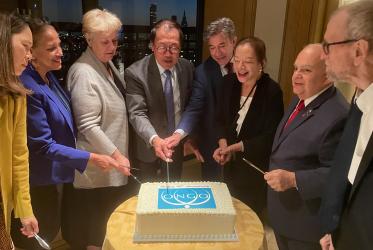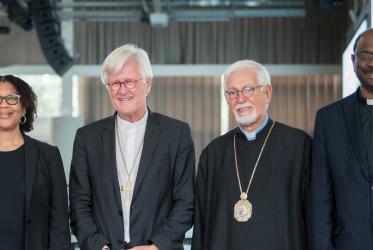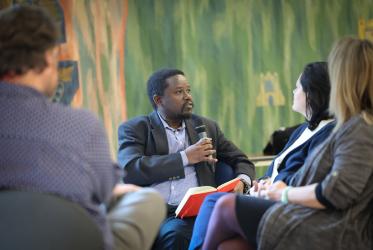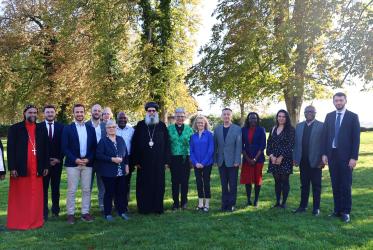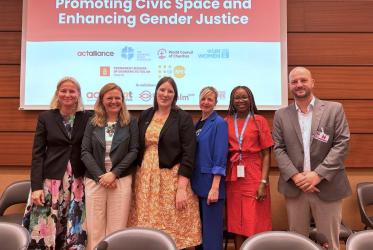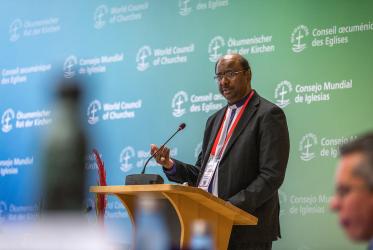Displaying 41 - 60 of 1344
Ahead of Her Time
Pan-African Women of Faith and the Vision of Christian Unity, Mission, and Justice
01 November 2023
WCC leaders step up as Thursdays in Black ambassadors
26 October 2023
At peace conference, WCC focuses on overcoming racism
26 October 2023
Thirty days that changed the ecumenical movement
23 October 2023
General secretaries celebrate collaboration and publication
13 October 2023



